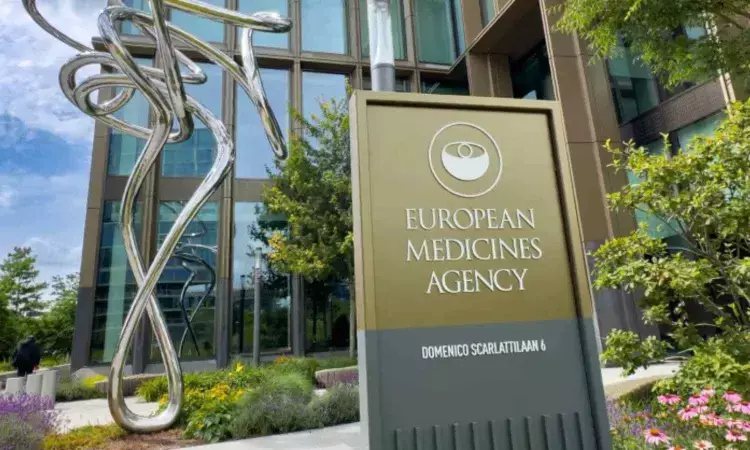- Home
- Medical news & Guidelines
- Anesthesiology
- Cardiology and CTVS
- Critical Care
- Dentistry
- Dermatology
- Diabetes and Endocrinology
- ENT
- Gastroenterology
- Medicine
- Nephrology
- Neurology
- Obstretics-Gynaecology
- Oncology
- Ophthalmology
- Orthopaedics
- Pediatrics-Neonatology
- Psychiatry
- Pulmonology
- Radiology
- Surgery
- Urology
- Laboratory Medicine
- Diet
- Nursing
- Paramedical
- Physiotherapy
- Health news
- Fact Check
- Bone Health Fact Check
- Brain Health Fact Check
- Cancer Related Fact Check
- Child Care Fact Check
- Dental and oral health fact check
- Diabetes and metabolic health fact check
- Diet and Nutrition Fact Check
- Eye and ENT Care Fact Check
- Fitness fact check
- Gut health fact check
- Heart health fact check
- Kidney health fact check
- Medical education fact check
- Men's health fact check
- Respiratory fact check
- Skin and hair care fact check
- Vaccine and Immunization fact check
- Women's health fact check
- AYUSH
- State News
- Andaman and Nicobar Islands
- Andhra Pradesh
- Arunachal Pradesh
- Assam
- Bihar
- Chandigarh
- Chattisgarh
- Dadra and Nagar Haveli
- Daman and Diu
- Delhi
- Goa
- Gujarat
- Haryana
- Himachal Pradesh
- Jammu & Kashmir
- Jharkhand
- Karnataka
- Kerala
- Ladakh
- Lakshadweep
- Madhya Pradesh
- Maharashtra
- Manipur
- Meghalaya
- Mizoram
- Nagaland
- Odisha
- Puducherry
- Punjab
- Rajasthan
- Sikkim
- Tamil Nadu
- Telangana
- Tripura
- Uttar Pradesh
- Uttrakhand
- West Bengal
- Medical Education
- Industry
EMA flags rare vision risk with Semaglutide- a active substance in Ozempic, Rybelsus, Wegovy

European Medicines Agency (EMA)'s safety committee (PRAC) has concluded its review of medicines containing semaglutide following concerns regarding a possible increased risk of developing non-arteritic anterior ischemic optic neuropathy (NAION), an eye condition that may cause loss of vision.
Semaglutide, a GLP-1 receptor agonist, is the active substance in certain medicines used in the treatment of diabetes and obesity (namely Ozempic, Rybelsus and Wegovy).
After reviewing all available data on NAION with semaglutide, including data from non-clinical studies, clinical trials, post-marketing surveillance and the medical literature, PRAC has concluded that NAION is a very rare side effect of semaglutide (meaning it may affect up to 1 in 10,000 people taking semaglutide).
Results from several large epidemiological studies suggest that exposure to semaglutide in adults with type 2 diabetes is associated with an approximately two-fold increase in the risk of developing NAION compared with people not taking the medicine. This corresponds to approximately one additional case of NAION per 10,000 person-years of treatment; one person-year corresponds to one person taking semaglutide for one year. Data from clinical trials also point to a slightly higher risk of developing the condition in people taking semaglutide, compared with people taking placebo (a dummy treatment).
EMA has therefore recommended that the product information for semaglutide medicines is updated to include NAION as a side effect with a frequency of ‘very rare’. If patients experience a sudden loss of vision or rapidly worsening eyesight during treatment with semaglutide, they should contact their doctor without delay. If NAION is confirmed, treatment with semaglutide should be stopped.
More about the procedure
The potential association between exposure to semaglutide and NAION (non-arteritic anterior ischemic optic neuropathy) was evaluated as part of a post-authorisation measure (LEG) resulting from a PSUR assessment.
The review has been carried out by the Pharmacovigilance Risk Assessment Committee (PRAC), the Committee responsible for the evaluation of safety issues for human medicines, which has made a set of recommendations.
The PRAC recommendations will now be sent to the Committee for Medicinal Products for Human Use (CHMP), responsible for questions concerning medicines for human use, which will adopt the Agency’s opinion. The CHMP opinion will then be forwarded to the European Commission, which will issue a final legally binding decision applicable in all EU Member States in due course.
Ruchika Sharma joined Medical Dialogue as an Correspondent for the Business Section in 2019. She covers all the updates in the Pharmaceutical field, Policy, Insurance, Business Healthcare, Medical News, Health News, Pharma News, Healthcare and Investment. She has completed her B.Com from Delhi University and then pursued postgraduation in M.Com. She can be contacted at editorial@medicaldialogues.in Contact no. 011-43720751
Dr Kamal Kant Kohli-MBBS, DTCD- a chest specialist with more than 30 years of practice and a flair for writing clinical articles, Dr Kamal Kant Kohli joined Medical Dialogues as a Chief Editor of Medical News. Besides writing articles, as an editor, he proofreads and verifies all the medical content published on Medical Dialogues including those coming from journals, studies,medical conferences,guidelines etc. Email: drkohli@medicaldialogues.in. Contact no. 011-43720751


